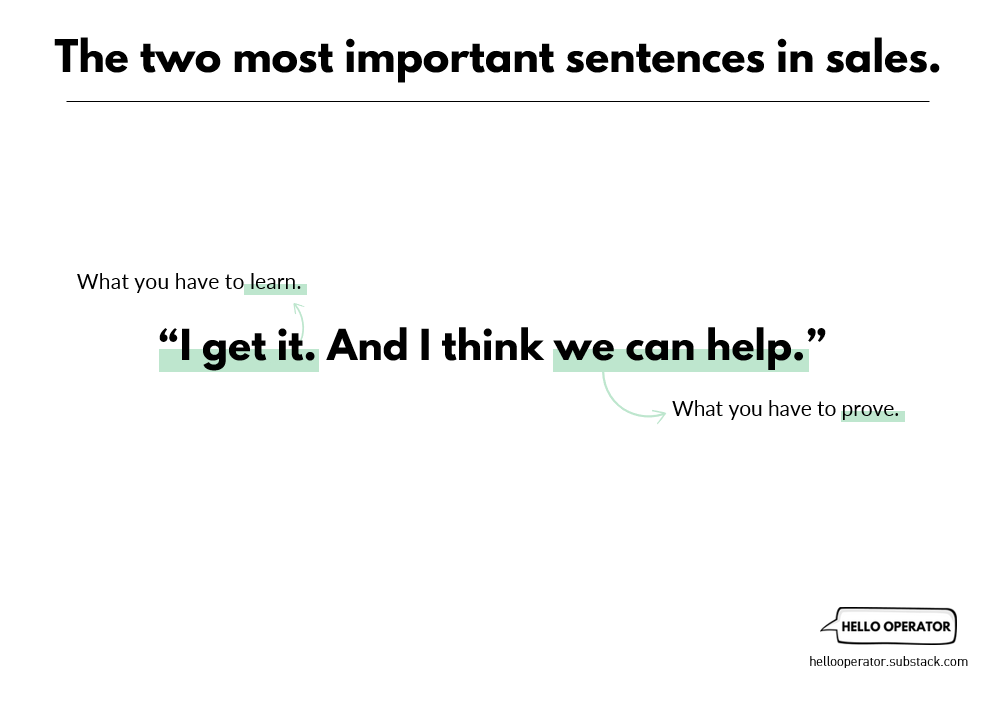The Two Most Important Sentences In Sales
The simple framework that cuts through all the sales complexity
This slide from an SKO keynote I gave a while back is still one of my favorite ways to explain what every first sales conversation is really for.
Here’s the message behind it.
In every first sales conversation, you're driving towards one moment where you can credibly say:
"I get it. And I think we can help."
That statement is your pivot point. Here's why it's so powerful:
You can't say "I get it" unless you've actually learned something. Asked questions about what's going on, what they're dealing with, how they feel about it. Gone past the surface-level stuff and gotten them to share something that's actually sub-optimal. Something they're either curious or cranky about.
You can't say "I think we can help" unless you actually know how. Unless you've picked up on the signals that your product solves the specific thing they just fessed up to. Unless you've seen this pattern before and have the confidence to think "yep, you look something like those people."
It's a forcing function. You have to learn before you can promise. And once you've learned what they're dealing with, now it's your turn. Now you have to prove you can actually help them with it.
But when you place that statement correctly, it creates what Wharton professor + author Jonah Berger calls a "curiosity gap" - a moment where people lean in because they actually want to hear what comes next.
Because what do buyers actually want from salespeople? Not another pitch. They want to be listened to, and they want help navigating their options. If they can tell you're listening, and you can deliver a credible promise to help, you've got their attention.
So next time you feel a little lost in front of a potential customer, remember what you should be driving towards.
Either ask the extra question you need to truly "get it" - or if you've already got it, shift into sharing exactly how you can help.
In a world where everyone seems intent on making sales more complicated than it needs to be, this is one of those simple frameworks that makes a big difference.



Paul, that is useful framework.
- I definitely agree with the first sentence. I start all sales meetings with "How can I help?". It gets me in the right frame fo mind to listen, and invites the client to open up about their need.
- I'm less convinced about the second sentence, which I'm taking quite literally. A salesperson needs to be able to say "I don't think we are best placed to help you."